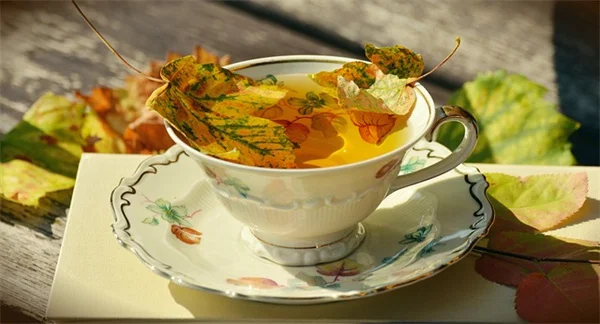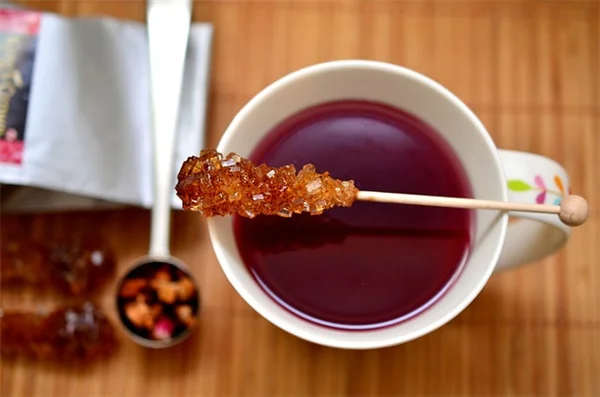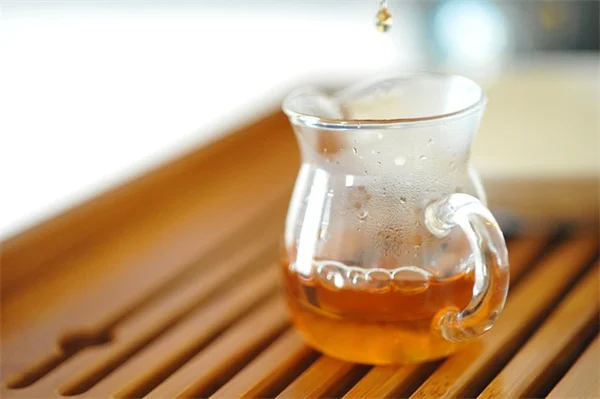Does lettuce water help you sleep? The short answer is: probably not. While TikTok is buzzing about this viral sleep hack, experts say the lactucarium in lettuce water exists in such small amounts that it's unlikely to have any real sedative effect. I've dug into the research and talked to sleep specialists, and here's what you should know before boiling your salad greens.You might be wondering - if millions of people are trying it, there must be something to it, right? Well, here's the deal: while lettuce contains compounds that could promote relaxation, you'd need to drink gallons of this stuff to maybe feel slightly drowsy. The most promising study was done on mice eating red romaine lettuce - not humans sipping on iceberg tea!But don't toss your lettuce just yet. There are some surprising benefits to drinking lettuce water that have nothing to do with sleep. And if you're really struggling to catch those Z's, I'll share some actually proven natural sleep remedies that work way better than this TikTok trend.
E.g. :Almonds for Weight Loss: The Surprising Truth Backed by Science
Advertisement
- 1、The Viral Lettuce Water Trend: Sleep Miracle or Just Hype?
- 2、The Surprising Benefits You Didn't Know About
- 3、What Actually Works for Better Sleep
- 4、Creating Your Perfect Sleep Routine
- 5、Final Thoughts on Lettuce Water
- 6、The Science Behind Lettuce's Potential Sleep Benefits
- 7、Cultural Perspectives on Sleep Remedies
- 8、The Psychology Behind Viral Health Trends
- 9、Alternative Natural Sleep Aids Worth Trying
- 10、Creating a Sleep-Positive Lifestyle
- 11、FAQs
The Viral Lettuce Water Trend: Sleep Miracle or Just Hype?
What's All the Fuss About Lettuce Water?
Have you seen those TikTok videos where people swear by drinking lettuce water before bed? I'll admit - when I first saw someone boiling lettuce like it was some ancient sleep remedy, I laughed too. But with over 1.5 million likes on these videos, I had to wonder: is there any truth to this?
The theory goes that lettuce contains lactucarium, a milky substance with potential sedative effects. But here's the catch - the amount you'd get from steeping a few lettuce leaves in hot water is probably about as effective as counting three sheep instead of five. Want to know something funny? The most promising study about lactucarium's sleep effects was done on mice eating red romaine lettuce - not humans drinking green lettuce tea!
Why Experts Are Skeptical
Let me break it down for you. Sleep expert Korina Burkhard explains that while the idea sounds nice in theory, the science just doesn't back it up. We're talking about trace amounts of potentially sleep-inducing compounds that would need to be much more concentrated to actually work.
Nutritionist Sas Parsad puts it this way: "You'd have better luck drinking warm milk with honey than lettuce water." And he's got a point. The gut-sleep connection is fascinating, but we need real evidence before jumping on the latest TikTok trend. Here's a quick comparison of popular sleep aids:
| Sleep Aid | Scientific Backing | Ease of Use |
|---|---|---|
| Lettuce Water | Very Limited | Moderate (boiling required) |
| Chamomile Tea | Strong | Easy (just steep) |
| Magnesium | Moderate | Easy (supplement form) |
The Surprising Benefits You Didn't Know About
 Photos provided by pixabay
Photos provided by pixabay
Not a Sleep Aid, But Still Good For You
Now before you toss that lettuce in the trash, hear me out. While it might not knock you out like sleeping pills, lettuce water does have some redeeming qualities. It's packed with vitamins A, C, and K - though honestly, you'd get way more nutrients just eating the salad instead of drinking the bathwater.
But here's something cool - that same lactucarium that probably won't make you sleepy? It might help with digestion. And let's be real, who doesn't want a happier gut? Just don't expect miracles from your lettuce brew.
Hydration Hero
You know what lettuce water is great for? Keeping you hydrated! With its high water content, it's a refreshing alternative to plain water. I sometimes add a squeeze of lemon to mine - makes it taste less like... well, lettuce water.
Pro tip: If you're going to try this, use organic lettuce. The last thing you need is pesticide tea before bedtime. And maybe skip the iceberg variety - it's mostly water anyway (literally 96% water!).
What Actually Works for Better Sleep
Chamomile: The OG Sleep Tea
Remember how your grandma always swore by chamomile tea? Turns out she was onto something. Unlike our lettuce water friend, chamomile has actual scientific studies showing its sleep benefits. The magic ingredient? Apigenin, an antioxidant that helps calm your busy brain.
I keep a box by my bed and drink it while reading (actual books, not TikTok). The ritual itself is soothing, which probably helps as much as the tea. Bonus: it doesn't taste like salad dressing!
 Photos provided by pixabay
Photos provided by pixabay
Not a Sleep Aid, But Still Good For You
Here's a question: Did you know most Americans don't get enough magnesium? This mighty mineral helps with muscle relaxation and stress reduction - two things crucial for good sleep. You can find it in foods like almonds and spinach, or take a supplement.
I started taking magnesium glycinate before bed and noticed I wake up less stiff. Just don't overdo it - too much can have... let's call them "digestive consequences." Trust me on this one.
Creating Your Perfect Sleep Routine
Timing Is Everything
Want to know the secret weapon for better sleep? Consistency. Going to bed and waking up at the same time every day (yes, even weekends) trains your body's internal clock. I used to be terrible at this until I realized why I felt so groggy on Mondays - my weekend "sleep-ins" were actually working against me.
Now I set an alarm for bedtime just like my morning one. Sounds crazy, but it works! And no, hitting snooze doesn't count as consistency.
Your Bedroom: Sleep Sanctuary
Think about it - would you eat dinner in the bathroom? Then why do we treat sleep spaces like multi-purpose rooms? Making your bedroom a sleep-only zone makes a huge difference. I invested in blackout curtains and it changed my life. Well, my sleep at least.
Here's my checklist for sleep-friendly spaces:- Cool temperature (around 65°F)- Complete darkness- Comfortable mattress- No electronics (yes, that means your phone too)
Final Thoughts on Lettuce Water
 Photos provided by pixabay
Photos provided by pixabay
Not a Sleep Aid, But Still Good For You
At the end of the day, lettuce water probably won't hurt you - unless you hate the taste so much it keeps you awake! While it's not the sleep miracle TikTok claims, it's a harmless trend if you enjoy it. Just don't expect it to replace proven sleep remedies.
I say if you're curious, try it! Worst case scenario? You get hydrated. Best case? Maybe you'll feel a little more relaxed. But for serious sleep issues, stick with the experts' advice.
Sleep Well, Live Well
Remember, good sleep isn't about quick fixes or viral trends. It's about creating healthy habits that work for you. Whether that's chamomile tea, magnesium, or just a consistent bedtime routine, find what makes you wake up feeling refreshed.
And if you do try the lettuce water thing? Let me know how it goes! I'm still waiting for someone to invent pizza water for better sleep... now that's a trend I could get behind!
The Science Behind Lettuce's Potential Sleep Benefits
Understanding Lactucarium's Effects
You might be wondering - why would anyone think lettuce could help with sleep? The answer lies in this milky white substance called lactucarium that appears when you cut certain lettuce varieties. Ancient Romans actually used it as a mild sedative, though they probably didn't make TikTok videos about it!
Modern research shows lactucarium contains compounds that may interact with the central nervous system similarly to opioids, but without the addictive properties. A 2017 study found that mice given lettuce extract showed reduced movement and increased sleep time. However, before you start boiling your entire salad, remember that mice aren't people, and the doses used in studies are much more concentrated than what you'd get from homemade lettuce water.
Different Lettuce Varieties Matter
Not all lettuce is created equal when it comes to potential sleep benefits. Wild lettuce (Lactuca virosa) contains significantly higher levels of lactucarium than the common varieties you find at grocery stores. Here's a quick comparison:
| Lettuce Type | Lactucarium Content | Ease of Availability |
|---|---|---|
| Iceberg | Very Low | Extremely Easy |
| Romaine | Low-Medium | Very Easy |
| Wild Lettuce | High | Specialty Stores Only |
If you're determined to try this trend, opt for darker green varieties like romaine over iceberg. The greener the leaves, the more beneficial compounds they typically contain. Just don't go foraging for wild lettuce unless you really know what you're doing - some lookalike plants can be dangerous!
Cultural Perspectives on Sleep Remedies
Historical Use of Lettuce as Medicine
Long before TikTok existed, ancient Egyptians were using lettuce for more than just salads. They believed it had medicinal properties and even associated it with their god of fertility. The Greeks and Romans wrote about lettuce's sleep-inducing effects too. Pliny the Elder claimed it could "invite sleep" when eaten at night.
In traditional medicine systems like Ayurveda, lettuce is considered cooling and calming to the nervous system. While these historical uses are fascinating, remember that people back then didn't have access to modern sleep science. They also believed in things like balancing bodily humors and the healing power of leeches!
Modern Global Sleep Practices
Looking at how different cultures approach sleep might give you better ideas than lettuce water. In Spain, the siesta tradition recognizes the value of afternoon naps. Japanese workers often take power naps at their desks. Scandinavians swear by fresh air, often sleeping with windows open even in winter.
What's the common thread here? They're all about listening to your body's natural rhythms rather than searching for magic potions. Maybe instead of boiling lettuce, we should be looking at how we structure our days to support better sleep naturally.
The Psychology Behind Viral Health Trends
Why We Fall for Quick Fixes
Let's be honest - we've all fallen for some health trend at some point. Why do we keep chasing these quick fixes? It comes down to psychology. When we're tired and desperate for solutions, our brains latch onto simple answers. A cup of lettuce water seems easier than overhauling our sleep habits.
Social media amplifies this effect through what psychologists call "social proof" - if millions of people are doing something, it must work, right? Not necessarily. Remember when everyone was eating spoonfuls of cinnamon? Some trends are just that - trends.
The Placebo Effect in Action
Here's something interesting: even if lettuce water doesn't contain enough active compounds to scientifically induce sleep, it might still help some people through the placebo effect. The ritual of preparing a special "sleep tea" and drinking it mindfully could signal to your brain that it's time to wind down.
I've found that any consistent bedtime routine - whether it involves lettuce water, chamomile tea, or just reading a book - can improve sleep quality. The key is consistency and believing in what you're doing. So if lettuce water becomes your sleep trigger, great! Just don't expect it to work miracles if you're still scrolling through Instagram in bed.
Alternative Natural Sleep Aids Worth Trying
Tart Cherry Juice - Nature's Melatonin
If you're looking for a scientifically-backed sleep drink, tart cherry juice might be a better bet than lettuce water. Studies show it contains natural melatonin and may help increase sleep time by about 30 minutes. I keep a bottle in my fridge and drink a small glass about an hour before bed.
The taste takes some getting used to - it's definitely tart! But I've found it more effective than lettuce water, and it doesn't leave my kitchen smelling like a salad bar. Plus, it's packed with antioxidants that are good for you whether they help you sleep or not.
Valerian Root - The Herbal Alternative
Valerian root has been used as a sleep aid since ancient Greek and Roman times, and modern research supports its effectiveness for some people. Unlike lettuce water, valerian contains compounds that have been shown to increase GABA, a neurotransmitter that promotes relaxation.
Fair warning though - valerian tea smells like dirty socks. The capsules might be more palatable if you're sensitive to smells. I tried it for a week and while it did help me fall asleep faster, my dog refused to cuddle with me because of the scent!
Creating a Sleep-Positive Lifestyle
Beyond Quick Fixes
Instead of chasing the next viral sleep trend, why not focus on building habits that support good sleep hygiene? Things like limiting screen time before bed, keeping a consistent sleep schedule, and creating a comfortable sleep environment make a bigger difference than any quick fix.
I started implementing a "digital sunset" where I turn off all screens an hour before bed. At first it was tough - I missed my late-night scrolling. But after a week, I noticed I was falling asleep faster and waking up more refreshed. Turns out our grandparents were right about reading before bed instead of watching TV!
The Power of Temperature
Did you know your body temperature naturally drops when you sleep? You can use this to your advantage by taking a warm bath about an hour before bed. The initial warmth followed by the cooldown mimics your body's natural sleep process.
I've experimented with different bedroom temperatures and found that keeping my room between 60-67°F works best. Any warmer and I toss and turn all night. A good rule of thumb: if you need blankets to be comfortable, your room is probably at the right temperature for sleep.
E.g. :Can TikTok's Lettuce Water Trend Help You Sleep Better?
FAQs
Q: What exactly is lactucarium and does it really help with sleep?
A: Lactucarium is that milky white substance you sometimes see when you break a lettuce stem. Some call it "lettuce opium" because it contains compounds that might have mild sedative effects. But here's the reality check - the amount in your average bowl of lettuce water is minuscule. We're talking trace amounts that would need to be highly concentrated to have any noticeable effect. The only decent study showing sleep benefits used extracted lactucarium on mice, not the weak tea version humans are making. So while the idea sounds science-y, the practical application just doesn't hold water (pun intended).
Q: Are there any health benefits to drinking lettuce water at all?
A: Absolutely! Just don't expect it to knock you out. Lettuce water is packed with vitamins A, C, and K, along with minerals like potassium and folate. It's super hydrating (lettuce is 96% water!) and can aid digestion. Pro tip: If you're going to try it, use organic romaine or butter lettuce - they tend to have more nutrients than iceberg. Add a squeeze of lemon or some mint to make it more palatable. Think of it as a light, refreshing drink rather than a sleep potion.
Q: What are some better natural alternatives for sleep?
A: If you're serious about improving your sleep, try these proven remedies instead: Chamomile tea (contains apigenin that actually binds to brain receptors), magnesium supplements (great for muscle relaxation), or lavender aromatherapy (studies show it reduces anxiety). Personally, I've had great results with a combination of magnesium glycinate and establishing a consistent bedtime routine. These options have way more scientific backing than lettuce water and won't leave your kitchen smelling like a salad bar.
Q: Could lettuce water be dangerous to drink?
A: For most people, lettuce water is perfectly safe - it's basically just very mild vegetable broth. However, there are a few things to watch out for: First, always wash your lettuce thoroughly to remove pesticides and bacteria (nobody wants food poisoning before bed). Second, if you're using wild lettuce varieties, be extra cautious as some can have stronger effects. And finally, if you have lettuce allergies (yes, they exist!), obviously steer clear. Otherwise, the worst that'll probably happen is you'll need to pee in the middle of the night from all that hydration!
Q: Why has this trend become so popular on TikTok?
A: Ah, the million-dollar question! TikTok trends spread like wildfire because they're simple, visual, and promise quick fixes. The lettuce water trend checks all those boxes - it's easy to film someone boiling lettuce, and everyone wants to believe in a magic sleep solution. Plus, when people see videos with millions of likes, they assume there must be something to it. The truth is, most of these videos show people feeling sleepy after drinking warm liquid before bed (which would happen with any warm beverage), not necessarily from the lettuce itself. Remember: viral doesn't always equal valid!


